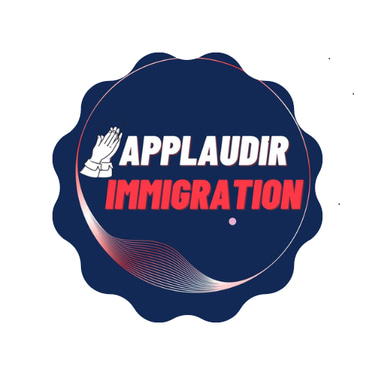What we do
Visas Assistance


NONIMMIGRANT VISA
The United States offers a variety of nonimmigrant visas for temporary visitors. Here is a list of the most common nonimmigrant visa categories along with a brief explanation of their purpose:
1. B-1/B-2 Visitor Visa: This visa category is for individuals traveling to the United States for business (B-1) or tourism or medical treatment (B-2) purposes.
2. F-1 Student Visa: This visa category is for individuals who wish to pursue academic studies in the United States.
3. J-1 Exchange Visitor Visa: This visa category is for individuals participating in approved exchange programs, including research, study, teaching, and cultural exchange programs.
4. H-1B Specialty Occupation Visa: This visa category is for individuals who have specialized knowledge in a particular field and are coming to the United States to work in a temporary capacity.
5. L-1 Intra-Company Transfer Visa: This visa category is for individuals who are employed by a company outside of the United States and are being transferred to a U.S. branch of the same company in a managerial, executive, or specialized knowledge capacity.
6. E-1 Treaty Trader/E-2 Treaty Investor Visa: These visa categories are for individuals who are coming to the United States to engage in international trade (E-1) or to make a substantial investment in a U.S. business (E-2).
7. O-1 Extraordinary Ability Visa: This visa category is for individuals with extraordinary ability in the sciences, arts, education, business, or athletics who are coming to the United States to work in their field of expertise.
8. TN Visa: This visa category is for Canadian and Mexican citizens who are coming to the United States to work in certain professional fields under the North American Free Trade Agreement (NAFTA).
9. P Visa: This visa category is for athletes, entertainers, and artists who are coming to the United States to perform or compete in their field.
10. R-1 Religious Worker Visa: This visa category is for individuals who are members of religious denominations and are coming to the United States to work in a religious capacity, such as ministers or missionaries.
11. K-1 Fiancé (e) Visa: This visa category is for individuals who are engaged to U.S. citizens and are coming to the United States to marry and live permanently.
12. E-3 Visa: This visa category is for Australian citizens who are coming to the United States to work in certain specialty occupations.
13. H-2A/H-2B Visa: These visa categories are for individuals who are coming to the United States to perform temporary or seasonal agricultural work (H-2A) or non-agricultural work (H-2B).
14. I Visa: This visa category is for representatives of foreign media, including journalists and broadcasters, who are coming to the United States to work in their profession.
15. G Visa: This visa category is for individuals who are coming to the United States to represent their government, including employees of foreign governments, international organizations, and NATO.
It's important to note that each nonimmigrant visa category has its own set of requirements, limitations, and application procedures. It's important to carefully review the eligibility requirements and application procedures for the specific visa category that is appropriate for your situation before submitting an application. The U.S. Department of State's website is a valuable resource for more detailed information about each visa category.
IMMIGRANT VISAS
IMMIGRANT VISAS
The United States offers a variety of immigrant visas for individuals who wish to permanently reside in the country. Here is a list of the most common immigrant visa categories along with a brief explanation of their purpose and the associated forms:
1. Immediate Relative Immigrant Visas (Form I-130): This visa category is for individuals who have an immediate family member who is a U.S. citizen and wish to permanently reside in the United States. This includes spouses, parents, and unmarried children under the age of 21.
2. Family Preference Immigrant Visas (Form I-130): This visa category is for individuals who have a family member who is a U.S. citizen or lawful permanent resident and wish to permanently reside in the United States. This includes married children, siblings, and unmarried children over the age of 21.
3. Employment-Based Immigrant Visas (Form I-140): This visa category is for individuals who have a job offer from a U.S. employer and wish to permanently reside in the United States. This includes individuals with specialized skills or advanced degrees.
4. Diversity Immigrant Visas (Form DS-260): This visa category is for individuals from countries with low rates of immigration to the United States who wish to permanently reside in the country. This visa category is also known as the green card lottery.
5. Refugee and Asylee Immigrant Visas (Form I-589): This visa category is for individuals who are fleeing persecution in their home country and wish to permanently reside in the United States. This includes individuals who have been granted asylum or refugee status.
It's important to note that each immigrant visa category has its own specific eligibility requirements, the application process, and timelines. To learn more about the requirements and application procedures for each immigrant visa category, visit the U.S. Citizenship and Immigration Services (USCIS) website.
SPECIAL VISA
SPECIAL IMMIGRANT
1. Special Immigrant Visas (Form I-360): This visa category is for individuals who are coming to the United States as special immigrants, including religious workers, Iraqi and Afghan translators, and victims of domestic violence.
2. Humanitarian Parole (Form I-131): This is not an immigrant visa, but a temporary authorization to enter the United States for individuals who are otherwise not eligible for entry, but have compelling circumstances such as medical or humanitarian reasons.
3. Cuban Family Reunification Parole (Form I-131): This is a special humanitarian parole program for Cuban nationals who have approved family-based immigrant visa petitions, but are subject to lengthy wait times due to the backlog of visas for Cuban nationals.
4. Violence Against Women Act (VAWA) Self-Petitions (Form I-360): This visa category is for individuals who are victims of domestic violence and are married to a U.S. citizens or lawful permanent residents.
It's important to note that each immigrant visa category has its own set of requirements, limitations, and application procedures. It's important to carefully review the eligibility requirements and application procedures for the specific visa category that is appropriate for your situation before submitting an application. The USCIS website is a valuable resource for more detailed information about each immigrant visa category
Frontier Immigration Group: This name invokes a sense of exploration and adventure, implying that your agency helps people to venture into new territory and explore new opportunities in the United States.
